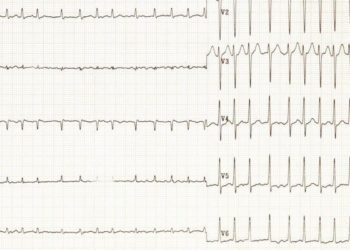Energy drinks may be harmful to the health of adolescents
Feb 1st – Pediatrics in Review – Energy drinks contain caffeine and other ingredients at levels that can lead to adverse health effects in adolescents.
[tabs tab1=”2MM Rundown” tab2= “2MM Full Report”]
[tab]
Image: PD
1. Energy drinks contain caffeine and other ingredients at levels that can lead to adverse health effects in adolescents.
2. Teenagers and adolescents should avoid energy drink consumption, particularly in combination with alcohol, until more is known about its health consequences.
In light of the significant health risks associated with energy drinks, and the absence of rigorously demonstrated long-term benefit, the authors advise against energy drink consumption, particularly in the setting of concomitant alcohol use in adolescent patients. It is encouraged for pediatricians and parents alike to maintain open dialogue about energy drink consumption and to be alert for adverse effects, as well as signs of caffeine dependence or abuse. As controlled studies examining energy drink use in adolescents are lacking, these recommendations are based on cross-sectional and case-based evidence. However, given the potential gravity of the health and social consequences reported here and anecdotally in the media, it is likely these recommendations will only be further supported by future investigations.
Click to read the study in Pediatrics in Review
[/tab]
[tab]
Image: PD
1. Energy drinks contain caffeine and other ingredients at levels that can lead to adverse health effects in adolescents.
2. Teenagers and adolescents should avoid energy drink consumption, particularly in combination with alcohol, until more is known about its health consequences.
This [review]: The authors provide a comprehensive discussion of energy drinks and their use among adolescents, primarily focusing on issues surrounding caffeine intake and concomitant alcohol consumption. As the Food and Drug Administration does not regulate the caffeine content of energy drinks, they can contain large amounts of caffeine, up to twice that found in soda. Excess caffeine consumption in adolescents can lead to numerous adverse effects, including cardiovascular (hypertension, dehydration, palpitations), psychiatric (anxiety, irritability), digestive, and other deleterious issues. Furthermore of alarm, cocktails containing alcohol and energy drinks are immensely popular among teens and college students. The authors cite multiple studies demonstrating increased rates of alcohol abuse and dependence, as well as adverse consequences including sexual assault, drunk driving, and injury in college students who regularly consume cocktails that include energy drinks. Moreover, simultaneous energy drink consumption diminishes the perceived effect of alcohol, causing users to underestimate their level of intoxication when making decisions and requiring increased alcohol consumption to achieve the same effect. Pre-made cocktails, which have now been banned in many locations nationwide, are particularly dangerous, as these are sold in large cans and can contain the alcohol equivalent of a full bottle of wine, as well as the caffeine equivalent of six cups of coffee.
In sum: In light of the significant health risks associated with energy drinks, and the absence of rigorously demonstrated long-term benefit, the authors advise against energy drink consumption, particularly in the setting of concomitant alcohol use in adolescent patients. It is encouraged for pediatricians and parents alike to maintain open dialogue about energy drink consumption and to be alert for adverse effects, as well as signs of caffeine dependence or abuse. As controlled studies examining energy drink use in adolescents are lacking, these recommendations are based on cross-sectional and case-based evidence. However, given the potential gravity of the health and social consequences reported here and anecdotally in the media, it is likely these recommendations will only be further supported by future investigations.
Click to read the study in Pediatrics in Review
By Jeff Dewey and Rif Rahman
More from this author: Early initiation of antiretroviral therapy linked with lower risk of cognitive impairment in HIV, The virtual lumbar puncture: MRI can predict CSF biomarker levels in patients with neurodegenerative disease, Intracranial pressure monitoring does not increase survival in patients with traumatic brain injury, PET imaging findings may precede cognitive impairment in patients at high risk for Alzheimer’s disease
© 2013 2minutemedicine.com. All rights reserved. No works may be reproduced without written consent from 2minutemedicine.com. Disclaimer: We present factual information directly from peer reviewed medical journals. No post should be construed as medical advice and is not intended as such by the authors or by 2minutemedicine.com. PLEASE SEE A HEALTHCARE PROVIDER IN YOUR AREA IF YOU SEEK MEDICAL ADVICE OF ANY SORT. Content is produced in accordance with fair use copyrights solely and strictly for the purpose of teaching, news and criticism. No benefit, monetary or otherwise, is realized by any participants or the owner of this domain.
[/tab]
[/tabs]





